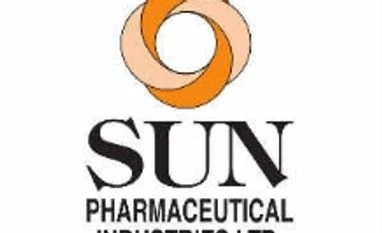Sun Pharma's biggest acquisition ever of Ranbaxy Laboratories would not only strengthen the former's US prospects, but its India and Rest of the World sales too. It's not only Sun, but Ranbaxy would benefit too. The latter has been struggling in US, due to FDA actions against its manufacturing facilities resulting in subdued growth in its largest market. Sun Pharma not only has experience in turning around the troubled plants as was seen with Caraco Pharma, but has adequate USFDA approved facilities to launch the held-over products through site transfer. In recent years, Sun has acquired Taro, Caraco, DUSA and URL to strengthen its US sales. In this backdrop, analysts are positive on both the stocks with some even upgrade Sun Pharma.
Win-win deal for both companies
Ranbaxy's large product basket pending approvals includes exclusive generics launch of anti-hypertensive product Diovan (due in September 2012 with market size of $1.9 billion per annum for the patented product) and Valcyte product (due in September 2013; market size of $300 million). Analysts estimate these to contribute $120 million to Ranbaxy during first six months of launch. Notably, in May 2014, the generic launch of acid reflux product Nexium (market size $5.9 billion per annum) is due, which could help Ranbaxy garner $300 million in sales. If Sun is able to get these product launches monetised, it will be a big boost for both companies.
Nevertheless, Sun Pharma is likely to benefit more, feel analysts. Sun, whose FY13 consolidated sales stood at Rs 11,239 crore, is acquiring a larger company Ranbaxy that had clocked in Rs 12,410 crore sales in CY12. But, Sun's FY13 profits at Rs 3,469 crore were 3.6 times higher than Ranbaxy's Rs 951 crore, largely due to higher PBIDT margins of 45% versus Ranbaxy's 17%. (In CY13, however, Ranbaxy had reported - adjusted for one-time items-- a loss of Rs 350 crore on sales of Rs 10,604 crore). Since Sun's margins are significantly higher, there is scope for gains on this front. In the interim though, Sun's consolidated margins and return ratios may take a hit due to Ranbaxy's weaker performance.
Analysts say, knowing Dilip Sanghavi's track record of successful acquisitions and their turnarounds, Sun's promoter would have done good assessment of what he is buying and it's potential. Also, most of the problems pertaining to Ranbaxy are now out in the open, hence any downside risk is largely known and priced in. Although Sun may take some time to turnaround Ranbaxy's fortunes given its large size, there is no cash outflow and given Ranbaxy's strong pipeline and reasonable deal valuations the same provide comfort.
Reasonable valuations
Also Read
The all-stock transaction deal would lead to around 16% equity dilution (worth $3.2 billion) for cash-rich Sun besides debt of $800 million coming on to its books. The deal values Ranbaxy at around 2.2 times last twelve months (LTM) sales. It puts the valuations at 1.6 times FY2015 estimated Enterprise Value/Sales, which is at discount to its peers who trade at 2.0-2.5x says Sarabjit Kaur Nangra at Angel Broking. Shareholders of Ranbaxy would get 0.8 shares of Sun Pharmaceuticals for every share held, implying value of Rs 457 for each Ranbaxy share or a premium of 18% to its 30-day volume.
Hitesh Mahida at KR Chowksey Shares and Securities feels that if Sun is able to get the Ranbaxy pending product launches monetised, the significant part of debt coming to Sun's books will be taken care. Analysts view the deal as EPS accretive in the medium to long run.
Looking at the overall gains, most analysts are positive on Sun. Sarabjit at Angel Broking maintains her Buy recommendation on Sun with a price target of Rs 661 while Ranjit Kapadia at Centrum Broking has a target price of Rs 780.
Bank of America-Merrill Lynch, say, "While the deal will be earnings dilutive in the near term (-4% in FY16), we see significant synergies over the next 3-4 years which we believe will lead to 10-12% incremental EPS in year 3 from the acquisition". The reseach house has upgraded Sun to Buy from neutral with a price target of Rs 680.
For Ranbaxy though, the stock may have corrected by three% to Rs 445 levels on Monday as a knee jerk reaction to the deal. However, it is likely to start tracking Sun Pharma's stock price and hence all corrections can be used to accumulate the stock given the synergies and the positives emanating from the deal.
A big leap for Sun
With the acquisition, Sun Pharma will now emerge as the fifth largest global specialty generic pharma company following Teva, Sandoz, Actavis and Mylan. The CY2013 pro forma revenues of Sun and Ranbaxy combined stands at $4.2 billion. In India, Sun Pharma along with Ranbaxy will also emerge as number one player with combined market share of 9.2% dislodging Abbott (6.5% market share) from the number one spot. Sun Pharma has market share of close to 5.4% (LTM sales of $651 million) and Ranbaxy, market share of 3.8% (LTM sales of $465 million). While Sun was at number one spot in seven specialties, the combined entity will become number one player in 13 specialties. Sun will also benefit from Ranbaxy's presence in Rest of the World sales looking at the latter's strong presence in Romania, rest of Europe and Africa.
)